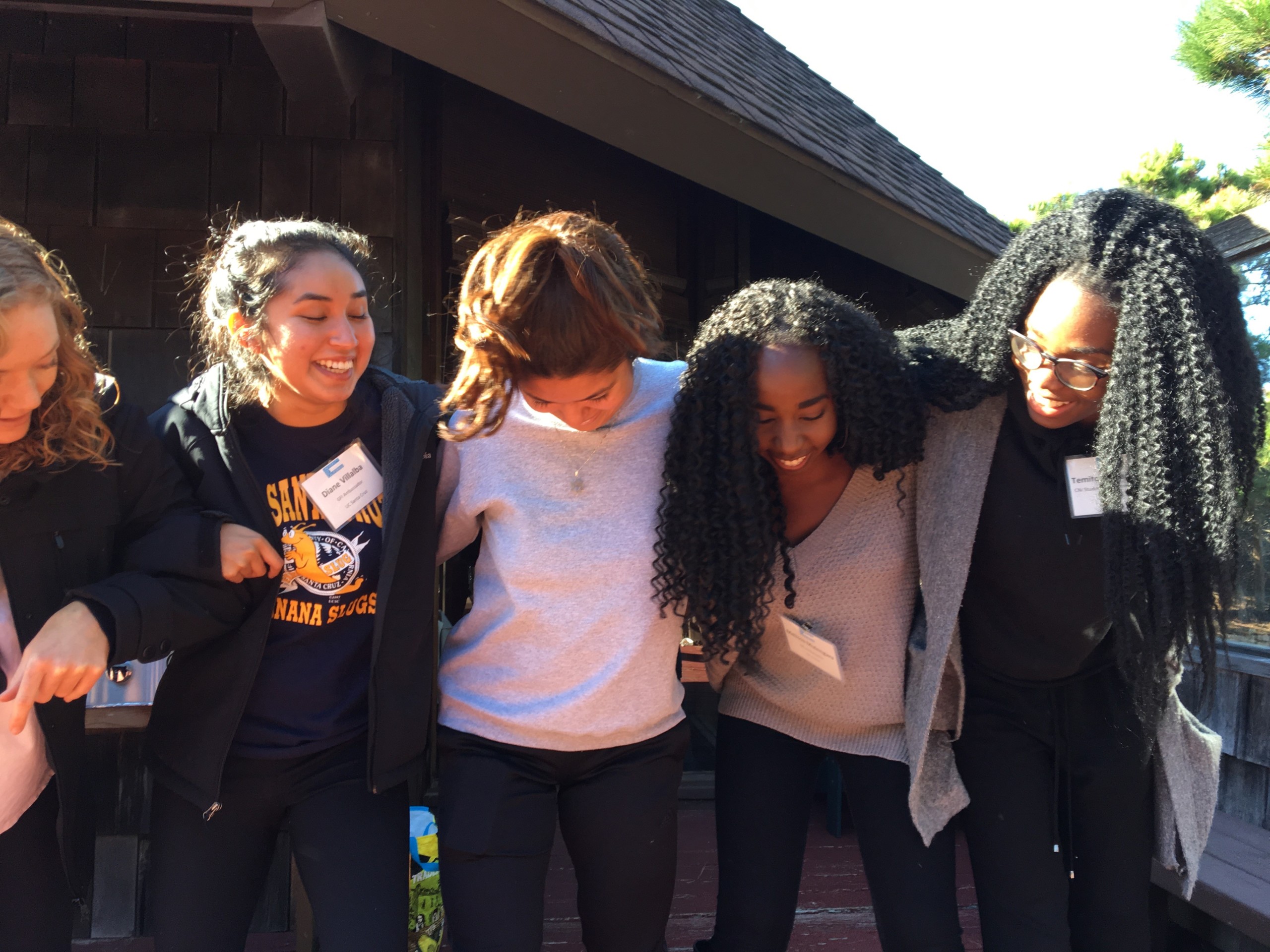The North Pole Show Recap

Community Resilience Fellows hosting the North Pole event and describing their fellowship projects.
By Tope Aladetimi, Community Resilience Student Fellow. May 10, 2018. On Wednesday, May 9, we hosted a viewing, discussion, and workshop about the North Pole Show at our Cross–Cultural Center as part of the Center’s Deconstruction Zone. The North Pole is a satirical web series about three best friends born and raised in North Oakland, California, who struggle to stay rooted as their neighborhood becomes a hostile environment as it faces both gentrification and climate change. We were fortunate to have both Josh Healey, the writer-producer of this web series, and Reyna Amaya, the lead actor present with us as special guests to UCI. The event was standing room only, drawing students, faculty, staff, and community members from across Orange County.

As a Community Resilience fellow in the Community Resilience Co–Lab, my main project this year was for students to see the interconnectedness of sustainability and social justice. It was my hope to co-generate a learning community in order to shift the mainstream notion of sustainability as being for a certain class or group of privileged people. The staff and students of the FRESH Hub; the DREAM Center; the Center for Black Cultures, Research and Resources; the Global Sustainability Resource Center; and Student Housing have been working together through this new collaboration on these aims. The Co–lab seeks to advance a coalition that mobilizes student capacity towards engagement, inspires exchange among a diverse cohort of activists and healers, lifts up cultural relationships to the earth, and educates at the intersections of environmental, racial, and social justice issues.
After the North Pole viewing, Josh and Reyna led a discussion in which folks raised their own experiences with gentrification in Oakland and in Santa Ana. It was then that we realized that we could see ourselves in the characters we saw in The North Pole. We discussed the dilemma we often find ourselves in as we try to transform these systemic injustices, while also needing to focus on having enough money for basic needs, sometimes being forced to find jobs in the very systems that oppress us. We had a genuine discussion among staff, students, and community members.

Make It Fresh! Spoken Word and Writing Workshop
Later in the afternoon, Josh and Reyna facilitated a “Make It Fresh!” workshop in the Ring Room. Make it Fresh! is a spoken word & writing workshop that explores the relationship between your environment and your community, race and place, ‘hood stories and global climate change. During this 90-minute workshop, we explored how the origins of the word “eco” evoke “home,” inviting us to include our own home environments, whether urban or suburban or rural, in our ideas of “ecosystems.” We also looked over lyrics from Mos Def’s Respiration to see the ways they use senses, imagery, and metaphors to create a visual that evokes “home” as the city and the body and the earth all at the same time. The 30 people present then took pen to paper to use imagery and our senses to describe our own homes, with the help of Josh and Reyna. This was an eye-opening experience because not only did we get to dismantle what others might think our homes are like, but we also found language to describe our own homes. This changed our perspective on home: what that looks like and who gets to decide what home is.
 Overall, this event was a success. We wanted to show this political comedy to students in order to teach our community about these social and environmental justice issues in a way that will stick with us, and in the end, I believe we did just that. We received so much positive feedback from students who loved the themes and enjoyed the afternoon we set aside learning about ourselves and our homes. The current state at UCI is that discussions about community resilience, identity, and environmental care are occurring on our campus but are just beginning to be clearly interwoven in a way that allows students to see and act from the intersectionality of the issues. I believe that with this event, we were able to solidify this connection for students in new ways.
Overall, this event was a success. We wanted to show this political comedy to students in order to teach our community about these social and environmental justice issues in a way that will stick with us, and in the end, I believe we did just that. We received so much positive feedback from students who loved the themes and enjoyed the afternoon we set aside learning about ourselves and our homes. The current state at UCI is that discussions about community resilience, identity, and environmental care are occurring on our campus but are just beginning to be clearly interwoven in a way that allows students to see and act from the intersectionality of the issues. I believe that with this event, we were able to solidify this connection for students in new ways.

